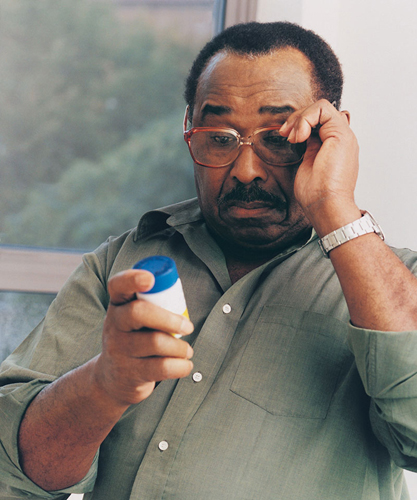| Q: |
What is an adjunctive medication?
|
| A: |
When a medication is used to treat a symptom of the condition,
but not for treatment of the condition itself, it is called an
adjunctive medication. In the treatment of migraine attacks, adjunctive
medications can be used to treat nausea and vomiting or to cause
sedation.
|
| Q: |
Can adjunctive medications help with a migraine attack?
|
| A: |
Yes. Some adjunctive medications can help abort a migraine attack
because they act as sedatives (make you sleepy). Sleep can abort a
migraine attack. Many anti-nausea medications cause sedation in addition
to stopping nausea and vomiting and so can also help with the attack.
|
| Q: |
How do antiemetics help during migraine attacks?
|
| A: |
During an attack, nausea and vomiting can prevent you from eating
or cause dehydration, which may make the attack last longer.
Antiemetics (antinausea medications) will help you keep down food and
liquids and can relieve the discomfort of nausea.
|
| Q: |
How are sedatives used to treat migraine?
|
| A: |
Sedatives are frequently prescribed for migraine attacks.
However, they should be avoided because they can cause medication
overuse headache. In some cases, sedation can be crucial. If a severe
attack is not aborted within 2 hours with your usual medication, you
need to repeat your initial medication and add something to make you
sleepy. In this case, taking an antinausea medication that causes
sedation will help you sleep and is better than taking a sedative.
|
| Q: |
Is there a medication I can use for nausea that does not cause sedation?
|
| A: |
Yes, you can use metoclopramide. This prescription medication
does not cause sedation and can help with the absorption of your
abortive migraine medications. You can take it with your abortive
medications.
|
Drugs to treat nausea and vomiting
The most effective
medication for the nausea and vomiting of a migraine attack is one that
can alleviate the symptoms as quickly as possible. It is very important
that these symptoms are controlled as soon as possible so you can drink
water and eat. If you are unable to avoid hypoglycemia and dehydration,
the migraine attack will worsen. Effective medication for nausea and
vomiting must be available at all times. You will need to discuss the
use of these medications with your doctor.
Table
| Antiemetic | Dosage | Form |
|---|
| Metoclopramide | 10mg | pill |
| | 5–10mg | injection |
| Chlorpromazine | 10mg | pill |
| | 50mg | suppository |
| | 25mg | injection |
| Prochlorperazine | 10mg | pill |
| | 25mg | suppository |
| | 10mg | injection |
| Promethazine | 25–50mg | pill |
| | 25–50mg | suppository |
| | 50–75mg | injection |
| Hydroxyzine | 25–50mg | capsules |
| | 75mg | injection |
